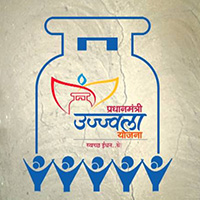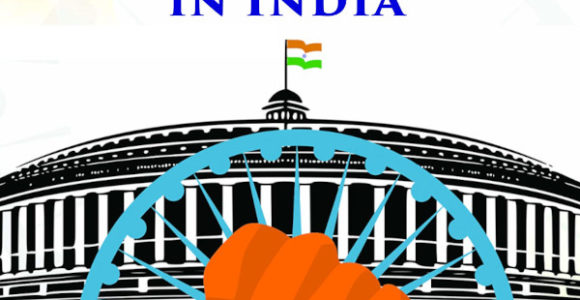
President of India
Role and Responsibility : President of India
The President of India holds the highest constitutional office in the country and serves as the ceremonial head of state. While the role is largely symbolic, the President of India plays a crucial part in maintaining the constitutional framework, ensuring the proper functioning of democracy, and upholding the rule of law. Here’s a detailed explanation of the President’s roles and responsibilities:
1. Constitutional Head of the Executive
- Appointment of the Prime Minister: The President appoints the Prime Minister of India, who is typically the leader of the majority party or coalition in the Lok Sabha (the lower house of Parliament). If no party has a clear majority, the President may use discretion to appoint a Prime Minister.
- Council of Ministers: The President appoints the other members of the Council of Ministers on the advice of the Prime Minister. The President also has the power to dissolve the Council of Ministers if the Prime Minister advises so.
- Appointing Governors: The President appoints the Governors of Indian states. Governors serve as the representatives of the President at the state level.
- Appointments of Key Officials: The President appoints key officials such as judges of the Supreme Court and High Courts, the Attorney General, the Comptroller and Auditor General, and members of various constitutional bodies.
2. Legislative Role
- Summoning and Proroguing Parliament: The President summons and prorogues both houses of Parliament (Lok Sabha and Rajya Sabha) and can dissolve the Lok Sabha when a general election is due.
- Assent to Bills: A bill passed by Parliament can only become a law after receiving the President’s assent. The President can either give assent, withhold assent, or return a bill (except for money bills) for reconsideration by Parliament.
- Ordinance Power: The President can promulgate ordinances when Parliament is not in session, allowing laws to be enacted temporarily on urgent matters. Ordinances must be ratified by Parliament within six weeks of reassembling.
- Addressing Parliament: The President delivers an address to both houses of Parliament at the beginning of each year or session, outlining the government’s plans and legislative agenda.
3. Judicial Role
- Appointments to Judiciary: The President appoints judges to the Supreme Court and High Courts. The President also appoints the Chief Justice of India, although the selection is based on a collegium system of senior judges.
- Granting Pardons: The President has the power to grant pardons, reprieves, respites, or remissions of punishment. This includes the power to commute death sentences.
- Discretionary Powers in Legal Matters: The President can seek advice from the Supreme Court on legal questions or matters that concern the interpretation of the Constitution.
4. Diplomatic and Military Powers
- Representing India: The President represents India in diplomatic and foreign affairs, receiving ambassadors and high commissioners from other countries and sending Indian diplomats abroad.
- Declaration of War and Peace: While the actual decision-making lies with the government, the formal declaration of war or peace is made by the President, as per the advice of the Cabinet.
- Supreme Commander of the Armed Forces: The President is the ceremonial head of the Indian Armed Forces, including the Army, Navy, and Air Force. However, the actual control is exercised by the Cabinet and the Ministry of Defence.
5. Emergency Powers
The President has the authority to declare various types of emergencies in the country, including:
- National Emergency (Article 352): Can be declared when the security of India or any part of it is threatened by war, external aggression, or armed rebellion. During a national emergency, the President can assume sweeping powers, such as the suspension of fundamental rights.
- State Emergency (President’s Rule) (Article 356): Can be imposed in a state if the President believes that the government in the state is not functioning according to the provisions of the Constitution. The central government takes over the administration of the state during this period.
- Financial Emergency (Article 360): Can be declared when the President believes that the financial stability or credit of India is threatened. It gives the central government control over financial matters and allows it to take steps to ensure fiscal discipline.
6. Role in Appointing Commissions
- The President appoints various constitutional commissions, such as the Finance Commission, Election Commission, Union Public Service Commission, and others. These bodies are responsible for administering and overseeing various sectors of governance.
7. Guardian of the Constitution
- Upholding the Constitution: As the symbol of the Indian state, the President ensures that the Constitution is respected and followed. The President acts as a guardian of the Constitution and is expected to act within its framework, ensuring that no law violates the Constitution.
- Discretionary Powers: In rare circumstances, the President may use discretionary powers when the government is unstable or in cases where the Constitution does not provide clear guidance on specific issues.
8. Other Ceremonial Roles
- Ceremonial Functions: The President performs various ceremonial duties, such as the swearing-in of the Prime Minister, ministers, and judges, and receiving foreign dignitaries. The President also inaugurates new sessions of Parliament.
- National Honors: The President confers honors and awards, including the Padma Awards, Bharat Ratna, and other decorations recognizing various accomplishments.
Conclusion
While the role of the President is largely ceremonial, they possess significant constitutional powers, especially in areas such as appointments, military command, the legislative process, and emergency situations. The President is expected to act on the advice of the Council of Ministers headed by the Prime Minister, but they retain certain discretionary powers that provide an important safeguard to the Constitution. The President’s role is fundamental in ensuring the proper functioning of India’s democratic system and its constitutional balance.
Key Terms:
- appointments ,
- ceremonial duties ,
- constitutional head ,
- diplomatic duties ,
- emergency powers ,
- executive powers ,
- guardian of the Constitution ,
- India president roles ,
- Indian Governance ,
- judicial responsibilities ,
- legislative role ,
- military commander ,
- national emergency ,
- pardons ,
- President of India ,
- presidential powers ,
- state emergency
Disclaimer: The information provided here has been compiled from various sources to the best of our knowledge. While every effort has been made to ensure the accuracy of the details, there may be occasional errors or omissions. If you find any discrepancies or incorrect information, kindly inform us so we can make the necessary corrections. Thank you for your understanding and cooperation.





